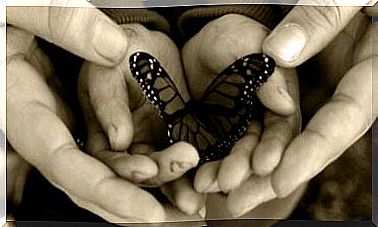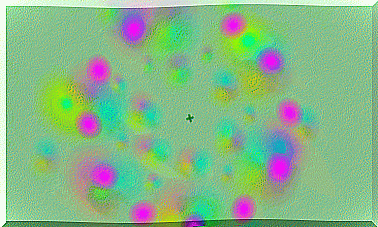Postpartum Post-traumatic Stress Disorder: What Should You Know?

Postpartum PTSD is one of the most common psychiatric disorders in women who have given birth. Its consequences are serious, generating high discomfort and preventing the normal functioning of the mother in her daily life. However, it is not always identified or cared for properly. Just as postpartum depression is widely known and taken into account, the same is not the case in this case.
Undoubtedly childbirth is a relevant event in the life of a woman. During it, important physical and emotional processes are triggered and an intense experience develops that marks, positively or negatively, the mother.
Unfortunately, between 1% and 6% of women develop post-traumatic stress disorder as a result of their birth experience, and these alarming figures highlight the need for adequate prevention and treatment measures.

What is Postpartum PTSD?
First, it should be noted that traumatic delivery is not the same as postpartum PTSD. In the first case we speak of those deliveries that are perceived by the mother as traumatic; that is, they are experienced (subjectively) as a serious threat to one’s life or that of the baby, although objectively this has not been the case. Women who experience traumatic childbirth report feeling helpless and without any control over the situation, as well as having been treated without consideration or compassion by health professionals.
This experience can trigger the appearance of emotions such as stress, dissatisfaction, anger or sadness related to the birth experience. Sensations that last over time, that affect psychologically and that affect the fear of getting pregnant again. However, these manifestations are considered subclinical (that is, they do not reach the status of the disorder itself) and only a small percentage of those who experience traumatic delivery end up developing PTSD.
Postpartum PTSD Symptoms
The symptoms of postpartum PTSD are the same that apply in any other situation experienced as a trauma, but in this case related to the experience of giving birth. Thus, they are mainly characterized by:
- Nightmares, intrusive memories or flashbacks that lead women to repeatedly re-experience the moment of delivery.
- Avoidance of all those thoughts, behaviors and situations related to the traumatic event. For example, the woman may avoid obstetric and gynecological examinations, try not to interact with other mothers, or even refuse to be in the presence of her baby.
- There is a restriction of the affective experience, appearing disinterest and lack of attachment.
- The mood is characterized by anxiety, irritability, anger and hypervigilance , with feelings of guilt, shame or hopelessness being possible.
- When remembering the birth, somatic symptoms such as sweating, breathing difficulties or palpitations are experienced.
Associated risk factors
The onset of postpartum PTSD depends largely on how the woman lives and subjectively perceives the experience, rather than the actual risk that it entails. So why are some women more susceptible to developing the disorder than others? Well, some of the main risk factors are the following:
- Have a psychiatric history or have suffered previous trauma
- Attending the time of delivery with little psychological preparation, high fear, lack of information or unrealistic expectations
- Have an emergency cesarean section or an instrumentalized delivery
- The occurrence of stillbirth, the presence of some disability in the newborn or the need to admit it to intensive care also increase the risk.
- Poor care, mistreatment or lack of support from health professionals during childbirth.
- Lack of professional support and support from the close environment during the postpartum period.

The importance of prevention in postpartum PTSD
There are certain studies that reflect the efficacy of psychotherapeutic interventions such as cognitive behavioral therapy or EMDR for the treatment of postpartum PTSD. However, the evidence is still insufficient due to the low awareness that exists regarding the disorder.
Given the serious consequences that it can entail for women on a personal level, as a couple and in connection with the baby, prevention measures are essential; above all, an attentive, empathetic and continuous monitoring by health professionals throughout the pregnancy, childbirth and postpartum process. But, in addition, early detection of the disorder is essential to prevent it from becoming chronic.









